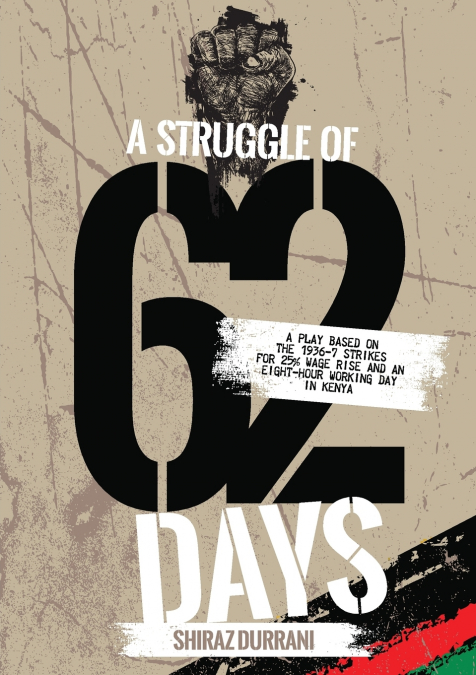
Shiraz Durrani
The Annual General Meeting of the Labour Trade Union of Kenya in Sept 1936 fixed Oct 1936 for implementation of the eight-hour day .. In December 1936, the Union gave notices to employers that all wages should be increased by 25% from April 1937. The strike began on 1 April, 1937. It was a complete strike. A strike-committee was formed, picketing was organised, a free kitchen was started .. the decision was popularised through handbills, meetings in residential areas, works-discussions and public announcements (preceded by ringing of a large bell), in the the main thoroughfares of Nairobi, and daily mass meetings. The campaign created a new spirit among workers. The employers were at last compelled to reach a settlement. They agreed to wage-increase of 15-22%, to an eight-hour day and reinstatement of all workers. The workers resumed work on 2 June, 1937.- Makhan Singh (1969)Thus ended the longest, and the most successful, strike in the history of Kenya. But the sacrifices, the actions and the reality of the strike for workers is not captured by history books. Nor are the organisation by the East African Trade Union Congress and the role of its leader, Makhan Singh, fully understood. In going on strike for sixty-two days, the workers showed their industrial and political power, unmatched to this day.Shiraz Durrani’s A Struggle of Sixty-Two Days is a welcome addition to a growing backlist of drama texts that draw on the rich and often hidden history of East Africa. A Struggle of Sixty-Two-Days sets itself apart from the tradition of historical plays before it by eschewing the use of a singular heroic figure to centre the drama. Instead, the play deliberately delivers the texture of the lived realities, skills and experiences of the workers who made a success of the longest and most consequential strike in the country’s history, but also acknowledges the collaboration and support they drew from the people against the backdrop of the imperialist, racist and colonial era The 1937 strike would not only deliver an eight-hour working day as a right, besides wage increases, but would also be the seeding for mobilising the people of Kenya to challenge injustice and launch the fight for freedom. It is a struggle that pits the might of imperialist capital against the survival instincts of the oppressed and their quest for justice. The scenery and dialogue transport the reader back to 1937, but its echoes still ring true in continuing present-day clashes between labour and exploitative capital.- Kwamchetsi Makokha